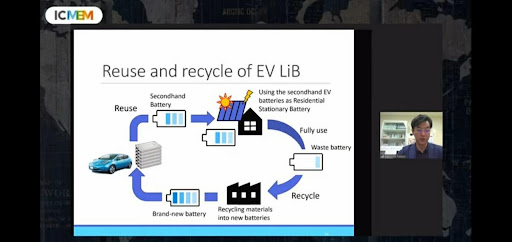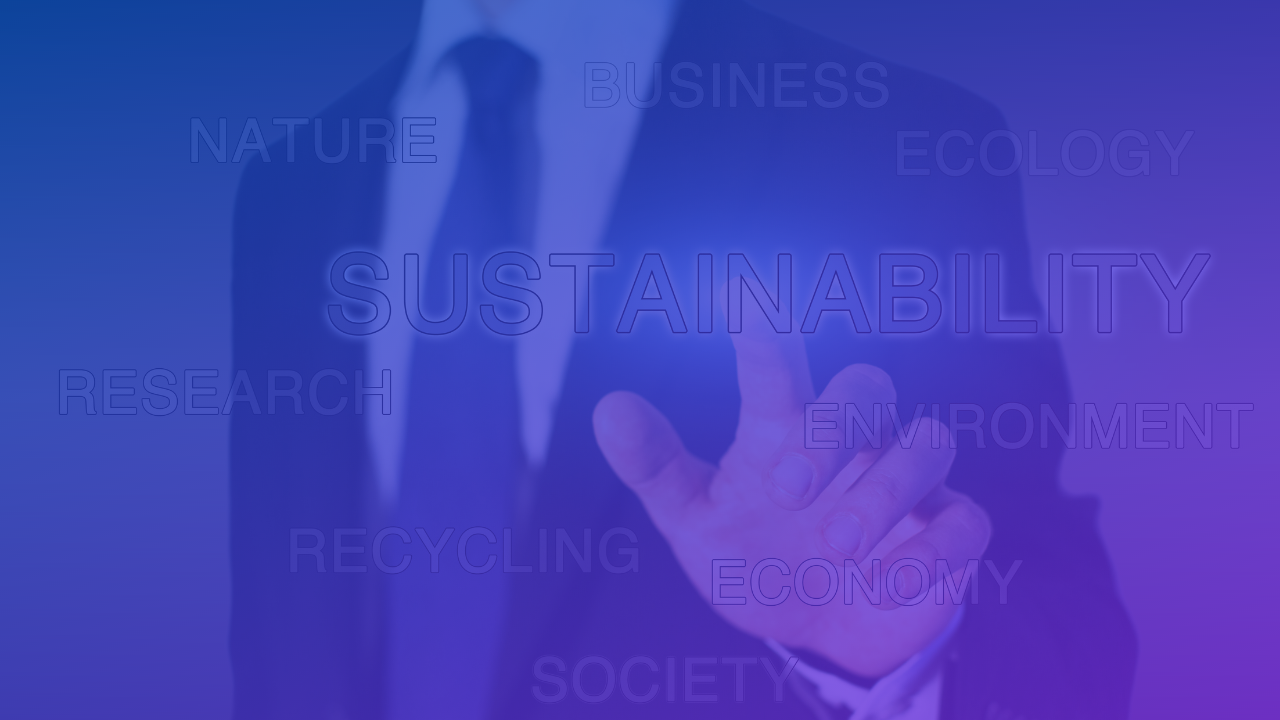Next Normal is an era that has been and will continue to occur due to the COVID-19 pandemic. It changes almost all aspects of human life, one of which is the social and economic aspects, especially in the business landscapes.
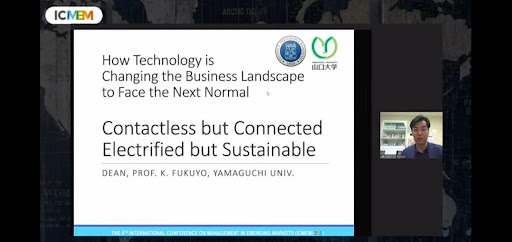 Therefore, on the second day of the 6th International Conference on Management in Emerging Markets (ICMEM) 2021, it discussed How Technology is Changing the Business Landscape to Face the Next Normal, and the second day started with a keynote presentation by Prof. Kazuhiro Fukuyo, the representative of Yamaguchi University.
Therefore, on the second day of the 6th International Conference on Management in Emerging Markets (ICMEM) 2021, it discussed How Technology is Changing the Business Landscape to Face the Next Normal, and the second day started with a keynote presentation by Prof. Kazuhiro Fukuyo, the representative of Yamaguchi University.
“There are some changes occur due to the COVID-19 pandemic and the next normal era. In short-term changes, we can see changes in people’s lifestyles, working styles, mobility, and others. Meanwhile, for long-term changes, there are climate change, natural resource changes, population growth and decline, aging, and other things”, said Fukuyo
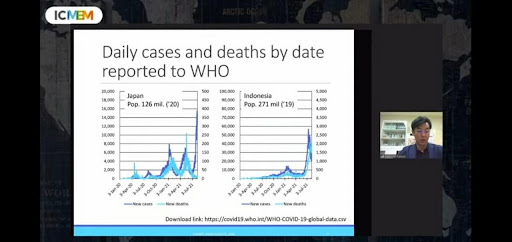 Fukuyo also added that due to the COVID-19 pandemic, WHO data shows a significant increase in death rates in Japan and Indonesia. There are significant changes in electricity usage, traffic rates, logistics rates, sales changes in the food-service industry, and others in Japan.
Fukuyo also added that due to the COVID-19 pandemic, WHO data shows a significant increase in death rates in Japan and Indonesia. There are significant changes in electricity usage, traffic rates, logistics rates, sales changes in the food-service industry, and others in Japan.
The changes mentioned are those that occurred within the business landscapes. Pandemic offers and forces businesses to consider the negative and positive impacts of pandemics on socioeconomic activities within the business landscape.
Therefore, to deal with the covid-19 pandemic, businesses must return to the basic meaning of a business, especially in the marketing aspect. When the market changes its lifestyle to all-online, businesses should analyze and provide what the market desires. In other words, businesses should always predict the future.
“We are in an era that makes it difficult for us to communicate between human beings. This creates a barrier in the middle of all activities. However, big tech companies GAFAM (Google (Alphabet), Apple, Facebook, Amazon, and Microsoft) make this an opportunity to get high profits”, said Fukuyo.
This could happen due to digital transformation applied in the business processes and systems of these companies. This transformation is the same as digital change that takes ten years but must happen within one year due to this pandemic.
Digitalization is a megatrend within the business landscape. With digital systems, all systems and people can connect well, regardless of distance and time. However, the use of digital systems and technologies generates various new problems, one of which is the use of energy that is very wasteful. All digital processes: computation, communication, and connection, require energy from fossil remains.
This energy is undoubtedly limited and creates significant waste due to the use of digital technology. It potentially creates a big problem, such as global warming, climate change, and other natural disasters caused by human activities. Thus, digitization is a solution to the problems that occurred due to the covid-19 pandemic, but it could be a bigger problem in the future.
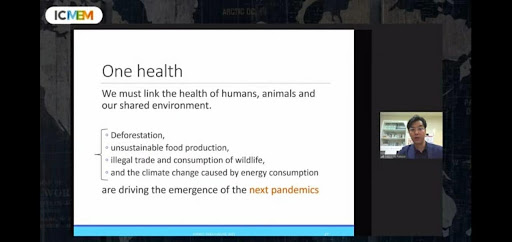 “To prevent that, there are three ways that can be done for smart energy use, such as energy conservation (High-performance air conditioners, LED Lights, Smart Grid, Home Energy Management System, etc.), renewable energy (wind, hydropower, solar energy, etc.), and energy storage (Use of Lithium-Ion Batteries (LiB) and the use of electric vehicles),” said Fukuyo.
“To prevent that, there are three ways that can be done for smart energy use, such as energy conservation (High-performance air conditioners, LED Lights, Smart Grid, Home Energy Management System, etc.), renewable energy (wind, hydropower, solar energy, etc.), and energy storage (Use of Lithium-Ion Batteries (LiB) and the use of electric vehicles),” said Fukuyo.
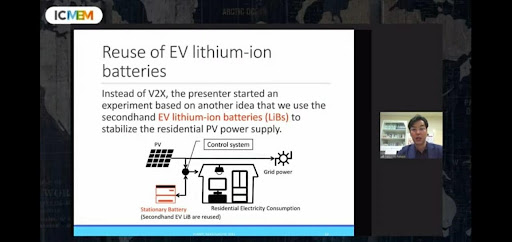 Fukuyo added that every process he mentioned could be recycled and reused when it is exhausted. Examples include the reuse of EV Lithium-Ion Batteries to stabilize the PV type power supply (A photovoltaic system, PV system, or solar power system) and the use of used EV batteries for supply as stationary batteries in the home.
Fukuyo added that every process he mentioned could be recycled and reused when it is exhausted. Examples include the reuse of EV Lithium-Ion Batteries to stabilize the PV type power supply (A photovoltaic system, PV system, or solar power system) and the use of used EV batteries for supply as stationary batteries in the home. 